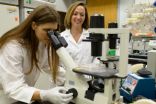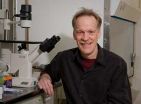(Press-News.org) Dublin, Ireland, November 9th 2014 - Botanists at Trinity College Dublin have launched a database with information that documents significant 'life events' for nearly 600 plant species across the globe. They clubbed together with like-minded individuals working across five different continents to compile the huge database of plant life histories, for which data have been gathered over a near 50-year span.
At a time in which climate change and increasing human populations are rapidly re-shaping plant distributions, the researchers hope their COMPADRE Plant Matrix database will foster collaborations between scientists and allow them to better answer questions such as how we can conserve the species that are critical for ecosystem services, and which may provide food for billions.
The researchers have just published an article in the prestigious international, peer-reviewed publication Journal of Ecology that describes the database. By making the precious data it contains free to download, they hope to inspire and accelerate important global research on plant biology.
"We hope that other scientists will use these data to answer questions such as why, unlike humans, some plants don't deteriorate as they age, why some environments are better for agriculture than others, and how fast plant populations will move in response to climate change," said Professor of Zoology in Trinity's School of Natural Sciences, Yvonne Buckley.
She added: "Making the database freely available is our 21st Century revamp of the similarly inspired investments in living plant collections that were made to botanic gardens through the centuries; these were also set up to bring economic, medicinal and agricultural advantages of plants to people all over the world. Our database is moving this gift into the digital age of 'Big Data'."
We are used to shops, websites and companies keeping track of our purchases, what we eat, who we date, and even when and how we exercise. Keeping track of the most intimate details of life, death and reproduction should not be unique to human populations, though.
We rely on plants for some of our most basic needs like food, shelter and clothing. It is therefore vital that we know the 'hows', 'whys' and 'wherefores' governing the success of a diverse range of plant species so that we can protect them and put them to use for the good of the world.
The COMPADRE database contains far more information than one person could ever hope to pull together over a lifetime. The data have been collected over the past 48 years by many scientists on five continents, with sites ranging from the searing heat of deserts to the freezing cold of arctic and alpine plant communities. As a result, there are almost infinite questions for researchers to explore.
The Max Planck Institute for Demographic Research (MPIDR) funded a lot of the data collection. The MPIDR is world renowned for its work on human population change, ageing and fertility, as well as the demography of animals and plants.
INFORMATION:
The journal article will be freely available (http://onlinelibrary.wiley.com/doi/10.1111/1365-2745.12334/abstract) after the embargo has lifted, and the COMPADRE Plant Matrix database will be freely available to download (http://www.compadre-db.org/).
Media Contact:
Thomas Deane, Press Officer for the Faculty of Engineering, Mathematics, and Science, Trinity College Dublin, at deaneth@tcd.ie or Tel: +353-1-896-4685
Yvonne Buckley, Professor of Zoology, Trinity College Dublin, at buckleyy@tcd.ie or Tel: +353-87-931-7638
** Professor Buckley is available for interview **
** Journal Article DOI = 10.1111/1365-2745.12334 **
About Trinity College Dublin
Trinity College Dublin, founded in 1592 is Ireland's oldest university and today has a vibrant community of 17,000 students. It is recognised internationally as Ireland's premier university. Cutting edge research, technology and innovation places the university at the forefront of higher education in Ireland and globally. It encompasses all major academic disciplines, and is committed to world-class teaching and research across the range of disciplines in the arts, humanities, engineering, science, social and health sciences.
Trinity is Ireland's leading university across all international rankings, and was ranked 61st globally in 2013 QS World University Ranking http://www.tcd.ie.
Bobbing your head, tapping your heel, or clapping along with the music is a natural response for most people, but what about those who can't keep a beat?
Researchers at McGill University and the University of Montreal, have discovered that beat-deafness, though very rare, is a problem not simply of how people feel a pulse or move their bodies, but instead, how people synchronize with sounds they hear.
"We examined beat tracking, the ability to find a regular pulse and move with it, in individuals who complained of difficulty following a beat in everyday activities ...
JACKSONVILLE, Fla. -- All patients with hepatitis C who receive a liver transplant will eventually infect their new livers. These transplanted organs then require anti-viral treatment before they become severely damaged. But traditional post-transplant hepatitis C therapy can take up to a year, is potentially toxic and can lead to organ rejection.
Now, at the American Association for the Study of Liver Diseases (The Liver Meeting® 2014) in Boston, researchers at Mayo Clinic report that use of two new oral medications post-transplant is safe and beneficial, and requires ...
Berlin, Germany (November, 2014) - Sweating, panting, moving to the shade, or taking a dip are all time-honored methods used by animals to cool down. The implicit goal of these adaptations is always to keep the brain from overheating. Now a new study shows that armor-plated dinosaurs (ankylosaurs) had the capacity to modify the temperature of the air they breathed in an exceptional way: by using their long, winding nasal passages as heat transfer devices.
Led by paleontologist Jason Bourke, a team of scientists at Ohio University used CT scans to document the anatomy ...
GAINESVILLE, Fla. -- Noroviruses are pernicious intestinal viruses. They cause violent vomiting and diarrhea, and people ill with the virus remain contagious up to three days after they seem to recover.
Although a vaccine for these viruses is in clinical trials, there is still no medication to combat them. That's in part because researchers have not been able to culture human noroviruses so they can test potential treatments -- until now, according to a study by University of Florida Health researchers published Friday, Nov. 7 in the journal Science.
UF Health researcher ...
In a new, in-depth research project, Queen's professors Rob Siemens (Urology) and Christopher Booth (Cancer Care and Epidemiology) investigated what affect higher volume hospitals and surgeons had on the outcomes of patients undergoing a radical cystectomy for bladder cancer in Ontario.
Using data provided by the Institute for Clinical Evaluative Sciences (ICES) the investigators studied 2,802 patients who underwent the procedure between 1994 and 2008 in Ontario and found that higher volume hospital and surgeons were associated with less post-operative complications and ...
BUFFALO, N.Y. -- Preschoolers whose parents have rules about what their children can and cannot eat have healthier eating habits than those raised without such rules, according to a new study by pediatrics researchers at the University at Buffalo.
The study also provides new information on how toddlers' ability to self-regulate, or control, their emotional and behavioral impulses influences their eating habits two years later, depending on the presence or absence of parental food rules.
The research is being presented on Nov. 7 at ObesityWeek 2014 in Boston. ObesityWeek ...
As if having a heart attack isn't bad enough, cardiologists know that the worst damage may actually occur after it's over.
Blocked arteries are typically the trigger, stopping the flow of blood and starving the heart muscle of oxygen. But when the blockage is removed and the blood comes rushing back, it wreaks havoc of its own. The result is called reperfusion injury, a life-threatening flood of inflammation and cellular destruction that has stumped scientists for 40 years.
Now, however, a potentially groundbreaking study by Fred Hutchinson Cancer Research Center scientists, ...
Seok Kang, associate professor in the UTSA Department of Communication, collaborated with Korean researcher Jaemin Jung to study the smartphone habits of college students in the United States and South Korea. The researchers were particularly interested in the type and amount of information college students from both countries disclose. The study was published in Computers in Human Behavior.
The two countries were selected due to the high rates of smartphone ownership among their young adults. Eighty percent of Americans own smartphones while the ownership rate in Korea ...
Researchers led by Dr. Debra Auguste, associate professor, biomedical engineering, in the Grove School of Engineering at The City College of New York, have identified a molecule that could lead to developing treatment for one of the most aggressive forms of breast cancer.
Triple negative breast cancers (TNBCs) have a high mortality rate owing to aggressive proliferation and metastasis and a lack of effective therapeutic options. However, Professor Auguste's team, discovered the overexpression of intercellular adhesion molecule-1 (ICAM-1) in human TNBC cell lines and tissues, ...
Employers know that dramatic changes in the workplace, such as the start of the "busy season" or a new, more demanding boss, can cause employees to act out in ways that hurt the bottom line. But a new study suggests that companies may be underestimating the impact of such behavior because they assume it only happens immediately after a stressful change.
The research from SF State organizational psychologist Kevin Eschleman shows that many employees wait weeks or months before engaging in "counterproductive work behaviors," like taking a longer lunch or stealing office ...






